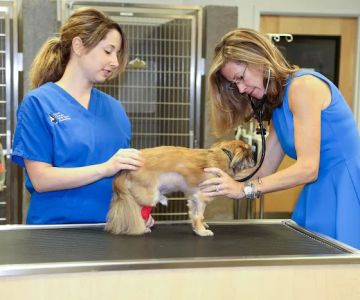What is an LVT in Veterinary Medicine?
- 1. Understanding the Role of an LVT
- 2. How to Become an LVT: Training and Certification
- 3. A Day in the Life of an LVT
- 4. Why LVTS are Essential in Veterinary Medicine
- 5. Career Opportunities and Growth for LVTS
1. Understanding the Role of an LVT
If you're considering a career in veterinary medicine or just curious about the different roles within a veterinary clinic, you may have heard of an LVT. LVT stands for "Licensed Veterinary Technician," and these professionals play a vital role in the health and well-being of animals. Much like a nurse in human healthcare, LVTs work alongside veterinarians to ensure animals receive the best possible care.
As a licensed professional, an LVT performs a variety of tasks, from assisting in surgeries to administering medications and providing client education. The role requires not only technical skills but also a deep passion for animal care, which is why LVTs are integral members of any veterinary team.

1328 Buford Hwy NE Building 200, Buford, GA 30518, USA
See Details2. How to Become an LVT: Training and Certification
Becoming a licensed veterinary technician requires formal education and certification. Typically, aspiring LVTs must complete an accredited veterinary technician program, which usually lasts two years. These programs combine classroom instruction with hands-on training, ensuring students gain the skills necessary to excel in the field.
After completing their program, students must pass a licensing exam, often referred to as the Veterinary Technician National Examination (VTNE), to become a certified LVT. Some states or countries may have additional certification or licensing requirements. Once licensed, LVTs must continue their education to maintain their certification and stay up-to-date with the latest advancements in veterinary medicine.
3. A Day in the Life of an LVT
A typical day for an LVT is fast-paced and varied. They might start their day by assisting in routine physical exams, drawing blood for lab tests, or helping with imaging procedures like X-rays. During surgeries, LVTs monitor the animal’s vital signs, prepare surgical instruments, and assist the veterinarian as needed. They may also prepare medications and administer treatments under the veterinarian’s guidance.
One of the most rewarding aspects of being an LVT is the opportunity to form lasting bonds with animals and their owners. LVTs often educate pet owners on how to care for their pets after surgery or administer medications at home. This part of the job requires strong communication skills, as LVTs need to provide clear instructions and answer any questions that pet owners might have.
4. Why LVTS are Essential in Veterinary Medicine
While veterinarians often get the spotlight in veterinary medicine, LVTs are just as essential to the success of veterinary practices. Without LVTs, veterinarians would be stretched thin, unable to provide the high level of care that animals need. LVTs are the backbone of many veterinary clinics, helping to manage the workflow, ensuring the safety and comfort of patients, and assisting in critical medical procedures.
One of the key reasons why LVTs are so important is their versatility. They can perform a wide range of tasks that not only save the veterinarian time but also improve the quality of care that animals receive. Whether they are running diagnostics, assisting in surgeries, or educating pet owners, LVTs contribute significantly to the overall health of the animals under their care.
5. Career Opportunities and Growth for LVTS
The career outlook for licensed veterinary technicians is bright. With the continued growth of the pet industry and increasing demand for veterinary services, LVTs are in high demand. Many LVTs find work in private veterinary practices, but they can also pursue careers in animal hospitals, research institutions, and even government agencies.
Additionally, there are many opportunities for LVTs to specialize in areas like anesthesia, dentistry, or emergency and critical care. Specializing can open up new career paths and lead to higher-paying positions. As the veterinary field evolves, the demand for skilled LVTs will only continue to rise, making it a rewarding and fulfilling career choice for anyone passionate about animal care.










